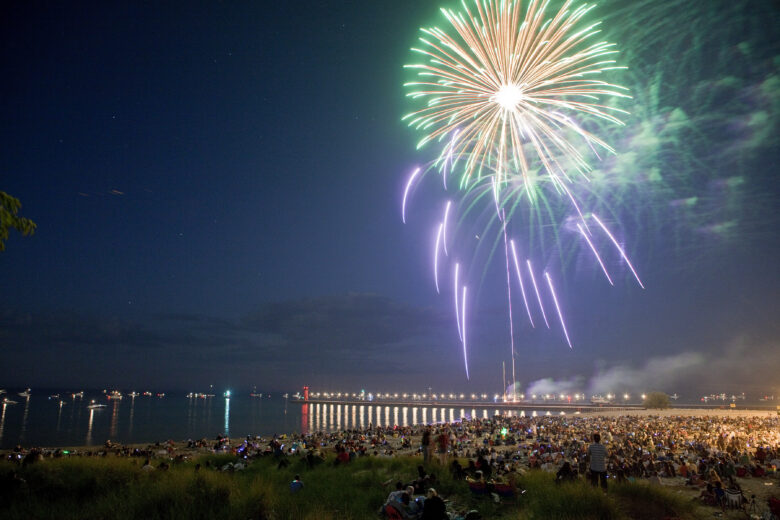Introduction to the History of South Haven Michigan
South Haven, located along the stunning shores of Lake Michigan, has a rich tapestry of history woven from the experiences of various indigenous tribes, early settlers, and evolving industries. Known for its beautiful sunsets and a vibrant community, this charming city offers a blend of natural beauty and historical significance that attracts visitors year-round. In this article, we will delve into the remarkable history of South Haven, highlighting key milestones and contributions that have shaped this unique locale.
The Native American Heritage of South Haven
Long before settlers arrived, the land now known as South Haven was home to several Native American tribes, including the Ottawa, Miami, and Pottawatomie. These tribes had a profound connection to the land, referring to it as “Ni-No-Kong,” which translates to “beautiful sunsets.” They utilized the area's rich natural resources, creating a vibrant culture that centered around the land and water.
The indigenous people were pivotal in shaping the early history of South Haven. They were engaged in trade, offering goods such as birch bark and maple syrup to the newcomers. Additionally, they played an essential role in the naming of the land, helping to lay the foundation for what would eventually become a bustling community.
The Founding of South Haven
The official founding of South Haven can be traced back to 1833 when Judge J.R. Monroe was granted a land patent for 65 acres of land along the Lake Michigan shore. Monroe envisioned a community that would thrive along the water's edge, drawing on both the abundant natural resources and the nearby lumber industry. This vision attracted more settlers, and Monroe reportedly built the first home in South Haven, a double log cabin, setting the stage for the establishment of a local government and a burgeoning community.
With Monroe's leadership, South Haven began to take shape. By 1838, A.S. Dyckman arrived from New York and became a notable civic leader, contributing to the development of the area by establishing the first hotel and commercial orchard. The government structure started forming, leading to South Haven being officially recognized as a village in 1869.
Growth and Development in the 19th Century
The 19th century was a dynamic period for South Haven, characterized by rapid growth and development. From 1838 to 1899, various essential infrastructures were established:
- Transportation: The arrival of the railroad in the late 1860s connected South Haven to larger markets, allowing for increased trade and movement of goods.
- Agriculture: The region flourished in agriculture, particularly with the cultivation of peaches that became famous throughout Michigan. The first commercial shipment of peaches took place in 1860, opening new economic avenues.
- Hospitality and Education: With the establishment of boarding houses and schools, South Haven became a destination for tourists and a community for families. The first schoolhouse was built in the 1850s, and by the late 1800s, several educational institutions were serving the growing population.
These changes transformed South Haven into a thriving market town, attracting people for its natural resources, accessibility, and community-driven spirit.
Cultural and Historic Sites in South Haven
As a community steeped in history, South Haven boasts several cultural and historic sites that reflect its rich heritage. The Historic Association of South Haven is dedicated to preserving the history of the area. Key landmarks include:
- Michigan Maritime Museum: This museum showcases the maritime history of the Great Lakes and houses significant artifacts, including boats and photographs that tell the story of South Haven's relationship with the water.
- Life-Saving Station: The first life-saving station in South Haven was established in 1887, serving as a vital point for rescuing individuals at sea.
- Local Churches: Various churches, such as the First United Methodist Church and St. Basil Catholic Parish, contribute to the cultural landscape and are testaments to the spiritual life of the community.
Exploring these sites not only provides visitors with insight into the past but also allows them to appreciate the community's commitment to preserving its history.
Historical Events and Local Celebrations
Over the years, South Haven has hosted numerous local events that celebrate its history and culture. From the Blueberry Festival, which pays homage to the region's agricultural roots, to the Centennial Celebration, marking a hundred years of community, South Haven thrives with activities that connect residents and visitors alike.
These celebrations enrich the local culture, featuring food, crafts, and entertainment that reflect the unique identity of South Haven. The festivals provide opportunities for community engagement, making the history of South Haven a living experience.
Outdoor Activities and Family-Friendly Attractions
South Haven is not just about history; it also offers a wealth of outdoor activities perfect for families and nature enthusiasts. The town is known for its beautiful beaches, parks, and recreational opportunities. Perfect destinations include:
- Sandy Beaches: Families can enjoy a sun-soaked day on the shores of Lake Michigan, swimming, building sandcastles, and taking part in water sports.
- Parks: Numerous parks throughout South Haven provide playgrounds, picnic areas, and trails for hiking and biking.
- Local Events and Discoveries: Throughout the year, local events like farmers' markets and outdoor concerts foster a sense of community and create lasting memories for families.
Visiting South Haven in Different Seasons
No matter the season, South Haven offers visitors unique experiences tailored for all preferences.
- Spring: Witness the blooming fruit orchards and participate in various festivals celebrating the natural beauty of the region.
- Summer: The beaches come alive with children playing, families picnicking, and visitors exploring the local shops.
- Fall: The stunning fall colors blanket the landscape, making it the perfect time for hiking and enjoying local wine tastings.
- Winter: During winter, enjoy the cozy charm of the town with activities like ice skating and holiday celebrations.
Each season presents new opportunities to discover and enjoy what South Haven has to offer.
Conclusion: Embrace the Heritage of South Haven
The history of South Haven is a vibrant reflection of a community that has grown from its Native American roots, through the struggles of early settlers, into a bustling town that harmoniously combines culture, nature, and history. By exploring South Haven, you can take a step back in time and gain a deeper appreciation for the stories that have shaped this beautiful locale.
As you plan your visit, consider booking a stay at Lake Family Paradise, where comfort and adventure await. Experience the stunning surroundings and rich heritage firsthand! To learn more and secure your reservation, visit www.michiganfamilyretreats.com.


